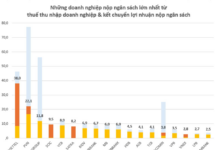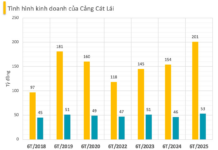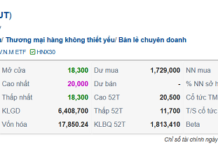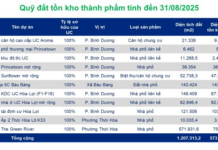
On March 14th, Prime Minister Pham Minh Chinh and Deputy Prime Minister Le Minh Khai chaired a conference to implement the monetary policy tasks for 2024, with a focus on removing difficulties for production and business, promoting growth, and ensuring macroeconomic stability.
In his concluding remarks, the Prime Minister called on ministries to take in feedback, proactively develop objectives, tasks, and solutions to effectively implement the monetary policy and support businesses in a substantial and efficient manner.
Following the conference, the Prime Minister instructed the Government Office and the State Bank to incorporate feedback and submit a Directive which conveys clear messages, tasks, and solutions, focusing on key issues and resolving difficulties in an understandable, achievable, monitorable, evaluable, and communicable manner.
Highlighting certain key content, the Prime Minister first mentioned some prominent results of the banking sector.
First, actively reviewing and improving the regulatory framework for monetary and banking operations. In particular, the revised Law on Credit Institutions has been passed by the National Assembly, and many related legal documents have been reviewed and amended.
Second, proactively and flexibly managing the monetary policy and exchange rate to contribute to macroeconomic stability and inflation control (inflation in 2023 was 3.25%, and 3.67% for the first two months of 2024). In 2023, interest rates were reduced four times, creating prerequisites for reducing deposit and lending interest rates; the basic exchange rate remained stable.
Interest rates on new loans in 2023 decreased by 2.5% per year compared to the end of 2022. As of the end of February 2024, the average deposit interest rate was about 3.3% per year, a decrease of about 0.2%, and the average lending interest rate was about 6.3% per year, a decrease of about 0.7% per year compared to the end of 2023.
Implemented flexible credit growth to support economic growth, especially in priority sectors, ensuring system safety. Credit in 2023 increased by 13.78%; the credit package of VND 15 trillion for the forestry and aquatic sectors was fully disbursed.
Ensured stable and smoothly-controlled money and foreign exchange markets (particularly in the context of market fluctuations in financial and monetary aspects in 2023, with some banks in the United States and Switzerland going bankrupt).
Third, actively supported businesses and people in overcoming difficulties, restoring production and business, creating jobs and livelihoods; promoting credit for the economy, enhancing access to capital.
Actively implemented debt restructuring policies, maintaining the same group of debtors and a series of preferential credit programs for key sectors.
Enhanced access to capital to promote credit for the economy (such as simplifying lending procedures; digitizing the loan process; reducing costs, reducing lending interest rates to support customers and businesses).
Fourth, continued to lead in digital transformation, administrative reform, and improving system capacity to optimize costs for the economy and improve the business environment.
Coordinated well with the Ministry of Public Security in the application of Project 06 in banking activities. Actively applied Industry 4.0 technologies to core products and services (such as payment, credit, and deposit collection, receiving).
Fifth, actively engaged in policy communications, ensuring clear, transparent information to promote consensus and consolidate people’s trust.
On behalf of the Government, the Prime Minister acknowledged and highly appreciated the State Bank of Vietnam (SBV) and the entire banking sector, credit institutions, levels, and related agencies for their efforts and achievements in the past, contributing significantly to the country’s overall achievements.

Prime Minister met with bank leaders at the conference on March 14.
In addition to the achieved results, the Prime Minister pointed out existing limitations, difficulties, challenges, and risks. The capital restructuring and credit policies have not been suitable, proportionate to the space and monetary policies.
Credit growth in the first two months of the year was not high, despite high deposits at credit institutions (currently over VND 1,360 trillion compared to VND 1,380 trillion at the end of 2023).
Although lending interest rates have decreased, they have not corresponded to the decrease in deposit interest rates; the lending interest rate for existing loans is still high. Many businesses have reported difficulties in accessing credit and high lending interest rates.
Non-performing loans tend to increase and pose risks, and some cases, such as SCB, show that supervision needs to be tighter and more effective. The achieved results of some preferential credit programs did not meet expectations (such as the VND 120 trillion credit package for social housing construction)…
Analysis of some lessons and experiences, the Prime Minister believes that:
(i) It is necessary to closely monitor the current situation, react promptly and effectively to policy changes in the international and domestic markets, contributing to improving the independence and autonomy of the economy.
(ii) Firmly maintain the objective of monetary policy, coordinate harmoniously with fiscal policy and other policies to contribute to inflation control, macroeconomic stability, and support economic growth. In managing, it must be proactive, flexible, clearly identify priorities and focal points suitable for each phase and stage of the economy.
(iii) It requires joint efforts and coordination of all relevant entities (Government, ministries, localities, banks, businesses, and people), foster and promote unity, sharing, and mutual assistance, truly strong, and inclusive thoughts.

Prime Minister Pham Minh Chinh: Firmly maintain the objective of monetary policy, coordinate harmoniously with fiscal policy and other policies to contribute to inflation control, macroeconomic stability, and support, promote economic growth. Photo: VGP/Nhat Bac
Direction, tasks, and key solutions for 2024
According to the Prime Minister, 2024 is a year of acceleration, breakthroughs, and especially important in implementing the successful 5-Year Plan 2021 – 2025. To achieve the set goals, it requires strong determination and great effort in the context of continued difficulties and challenges.
The overall objectives have been set out in the Conclusion of the Central Party Committee, resolutions of the National Assembly and the Government; focus on promoting growth associated with maintaining macroeconomic stability, inflation control, ensuring major balances of the economy; at the same time, pay attention to ensuring social security, improving people’s living standards; strengthening national defense, security, maintaining social order and safety; promoting foreign affairs and international integration, maintaining a peaceful environment and favorable conditions for national development.
Some specific objectives include achieving a GDP growth rate of 6 – 6.5%; average consumer price index (CPI) growth rate at 4.0 – 4.5%; domestic non-performing loan ratio (excluding weak commercial banks) below 3%,…; credit growth rate reaching 15%.
The guiding direction and management of the Prime Minister are summarized in three phrases: “5 increases,” “5 decreases,” “5 acceleration and breakthroughs”:
“Increases” include: increasing access to and absorption of credit, especially for small and medium-sized enterprises, traditional growth drivers and new growth drivers; increasing resolution of legal and credit quality obstacles; strengthening close and effective coordination between the State, banks, enterprises, and banking management capacity, financial market; increasing openness and transparency in deposit and lending rates and anti-black credit; enhancing supervision, examination, control, and prevention of risks, against corruption and negativity.
“Decreases” include: reducing lending interest rates; reducing transaction costs and operations; reducing administrative procedures; reducing annoyance, disturbances; reducing negatives, group interests, “back lawns”…
“Acceleration and breakthroughs” include: accelerating and breakthroughs in digital transformation; accelerating and breakthroughs in service quality; accelerating and breakthroughs in human resource quality; accelerating and breakthroughs in banking infrastructure; accelerating and breakthroughs in serving production and business, creating employment and livelihoods for people, contributing to economic growth.
A guiding approach is to closely follow the situation and practical requirements, respond promptly and effectively to policy changes, not being passive, negligent, nor worried or emotional; must persevere, determine, firmly implement strategic goals; not “last-minute” management.
Continuously innovate, be proactive, flexible, creative, quickly “change the situation,” “switch the status.”
Maintain unity, solidarity, joint efforts, and unity in spirit: make greater efforts if already making efforts, have a higher determination if already determined, be more efficient if already efficient.
For the key tasks and solutions of 2024, the Prime Minister requires:
The State Bank to comprehensively and resolutely deploy effective measures and tasks according to Resolutions and Conclusions of the Central Steering Committee, the Politburo; Resolutions of the National Assembly and the Government, especially Resolutions No. 01 and 02/ND/CP and the Prime Minister’s Directive on monetary, credit, exchange rate, interest rate management…, most recently, Official Correspondence No. 18/CD-TTg on credit growth management. Timely develop decrees and issue circulars to implement the Law on Credit Institutions (amended).
Closely monitor the global and domestic situations to proactively, flexibly, promptly, and effectively manage monetary policy, especially managing harmoniously between interest rate and exchange rate. Efficiently manage credit growth, focusing on ensuring the safety of banking and credit institutions.
Strengthen inspection, examination, control, and supervision of credit provision by credit institutions; strictly prohibit lending that does not comply with legal regulations, improper subjects. Effectively implement information and propaganda work on monetary, credit, exchange rate, and interest rate policies…
For credit institutions, the Prime Minister requires concrete instructions to be issued in the banking system that specifies the Government’s and the Prime Minister’s directives.
Promote the pioneering and exemplary role of domestic credit institutions; enhance social responsibilities and business ethics of credit institutions in sharing, supporting people and businesses based on the principles of “balanced interests, shared risks” and “win together.”
Vigorously and effectively implement credit growth solutions, direct credit towards production, business, priority sectors, and growth drivers; strictly control credit for sectors with potential risks, ensuring safety, efficiency, and liquidity risk control.
The Prime Minister also noted that lessons should be drawn from previous preferential credit packages that were implemented well and poorly, continue to prioritize balancing capital sources to meet timely and adequate demands for priority sectors, including agriculture; review and classify real estate projects to timely apply appropriate credit solutions to each eligible enterprise and project; have credit appropriate to BOT, BT transport projects, key projects, and the petroleum sector; continue to effectively implement preferential credit programs…
Strengthen lending to serve living standards, consumption by exploiting the national database on population; promote the effective implementation of online and e-lending. Diversify banking products and services suitable for each customer segment and market, type, production, and business needs of the people, businesses, especially legitimate, legal borrowing needs for people’s lives and consumption.
Actively, proactively implement the banking-business connection program in appropriate forms. Continue to implement the debt repayment term restructuring policy and maintain the same debt group as stipulated in Circular No. 02/2023/TT-NHNN, ensuring strict, safe monitoring, prevention, and handling risks.
Continue to reduce costs, strive to reduce lending interest rates; strictly implement the announcement of the average lending interest rate for people and businesses to easily choose their lending bank.
For relevant ministries and agencies, the Prime Minister assigned the Ministry of Finance to continue to harmoniously and closely manage fiscal policies with monetary policies. Review and improve regulations related to the stock market, corporate bonds, and promote the stock market’s role as an effective long-term capital mobilization channel for businesses.
Focus on effective implementation of enhancing the operation of the Small and Medium Enterprises Development Fund by the Ministry of Planning and Investment.
Continue to accelerate the improvement of the business environment, simplify investment procedures and administrative procedures to facilitate investment and business activities of the people and businesses. Urgently report to the Government to propose budget allocation to implement social housing development policies.
The Ministry of Industry and Trade to continue to diversify export markets, products, supply chains; consolidate and expand Vietnam’s market share in traditional markets, make breakthroughs in expanding potential new markets.
Organize nationwide promotion programs to coordinate localities to enhance supply-demand connections, stimulate domestic consumption, and promote market development nationwide.
The Prime Minister noted that the Ministry of Industry and Trade should promptly develop direct power purchase mechanisms, plan to deploy the Eighth Power Plan, with the spirit “if it is in the plan, make the first plan, if not in the plan, consider carefully, evaluate, and may issue multiple plans rather than just one. The plan that is not matched needs to be evaluated again and can be supplemented but must be legal, within the regulations, and against negatives and corruption.”
The Ministry of Public Security urgently needed measures to prevent, handle cross-ownership, and manipulation in credit institutions, ensuring the safety of the credit institution system and financial and monetary security.
Accelerate the implementation of Project 06, providing online public services, focusing on implementing the Prime Minister’s Directive No. 05/CT-TTg on this issue.
The Ministry of Natural Resources and Environment urgently proposed the issuance and promulgation of guiding documents for the Land Law; proposed amendments to the Law on Minerals, especially provisions related to procedures for common building material mines.
Build and improve the Land Information System, coordinate with the Ministry of Construction to connect with the Housing Information System and the real estate market.
Localities closely coordinate and create favorable conditions for credit institutions, people, and businesses. Prioritize resources to serve production and business, support people and businesses in appropriate forms; focus on preventing black credit…
For economic organizations and people, the Prime Minister recommends implementing production and business activities in accordance with the law, flexible and adaptive in all circumstances, continue to innovate in management, enhance competitive capacity, access credit, and other legitimate capital mobilization capacity.
Coordinate with the State to improve mechanisms, policies, which include close coordination with credit institutions to effectively use credit capital, improve the efficiency of production and business activities.
With the spirit “Even a steep mountain has a way to climb. A difficult and poor road still has a way to pass,” “Fire tries gold, and hardships test strength,” the Prime Minister expressed his hope and confidence that all relevant entities will continue to promote their achieved results, overcome difficulties and challenges, always maintain unity, joint efforts, and unanimity; make efforts to best accomplish the set objectives and tasks.





































